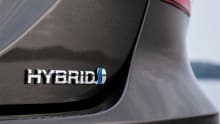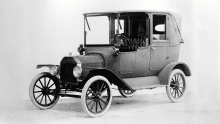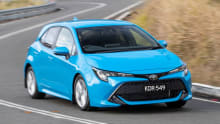
How much does it cost to replace a windscreen?
This used to be a simple question since most car windscreens were made from the...
Browse over 9,000 car reviews

Detailed below are details of different car finance options.
Personal Loan
A personal loan allows you to borrow a one-off lump sum and make regular set payments to pay it back. You can typically spread your repayments over between one to seven years. The longer the term, the smaller the size of the regular repayments you make.
With a personal loan you typically can't redraw the funds you've repaid (even if have repaid more than the minimum required) and unlike a line of credit or credit card you can't use the credit for other purchases.
Most personal loans have a minimum value, which can vary from $1,000 to $10,000 depending on the lender. Also check the maximum - some loans are unlimited and some are capped at $25,000.
Personal loans can be secured or unsecured, which is where a good is used as security against the amount lent. If your loan is secured this can reduce the interest rate and influence the maximum amount lent. Personal Loans secured specifically with a car are called Car Loans.
Car Loans
Car loans are similar to Personal Loans, however the car being purchased is security for the loan (some lenders may call it a Secured Personal Loan). Having your car as security means that if you default on your loan repayments your car can be seized. Compared to an unsecured loan, this means the interest rates can be lower.
In order for the car to be eligible to be security it generally must meet some criteria. For example:
•New - cars may have to be brand new and purchased from a dealer only. New car loans generally have lower interest rates.
•Used - can be limited to cars less than seven years old for some lenders, and for many used cars the minimum loan amount may have an impact.
•Minimums - secured loan minimums (the borrowing amount, not the car purchase price) can range from $4,000 to $10,000 for car loans.
If your situation may be outside the criteria, check with the lender you're considering before you apply.
Credit Card
You can use a credit card to buy a car, and it can even be recommended by some lenders if you want to borrow an amount lower than their loan minimum, especially if they have a low rate credit card in their product suite.
Buying a car using a credit card can may not be as bad as it sounds. Find out more about the pros and cons in Buying a Car with a Credit Card.
Car Lease
A car lease is a bit like renting a car for a period, with the option of buying it at the end of the lease for a residual - that is, value or percentage typically agreed up front.
Car leases can be good for:
•Consumers whose employer offers salary package for cars through a Novated Lease.
•Businesses who don't want to tie up capital owning a depreciating asset.
Find out more about leasing in Considering a Car Lease
Hire Purchase
Hire Purchase, sometimes called Commercial Hire Purchase, is a finance option where the financier buys the car, and you hire it from them for the agreed term. Similar to a lease, you can include a large payment at the end of the agreement however this is not mandatory.
A Hire Purchase is designed for companies or individuals who use the car for business purposes.
Chattel Mortgage
A chattel mortgage is a car finance option suitable for businesses, where the car (the chattel) being purchased is used for business more than 50% of the time.
The business takes ownership of the car straight away without having to tie up capital in the purchase, yet can claim tax eligible benefits on the vehicle. You do have the flexibility to include a payment at the end of the term in order to reduce repayments but this is optional.










Comments